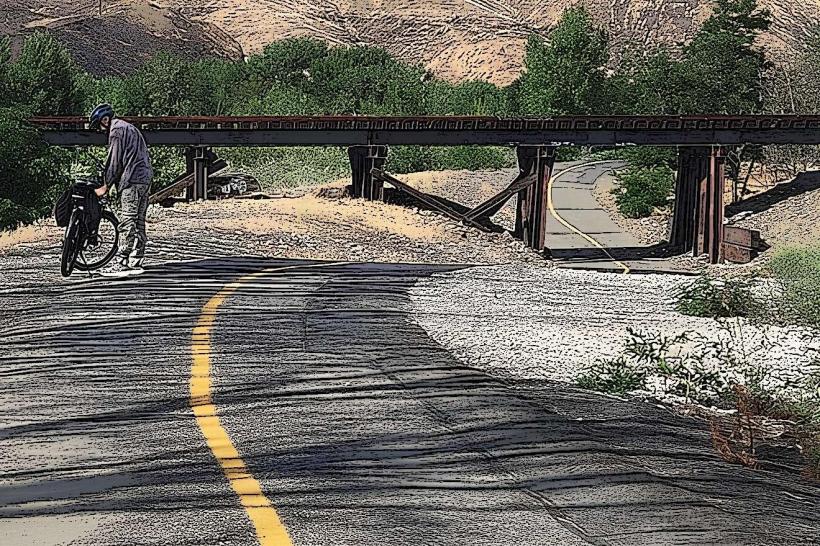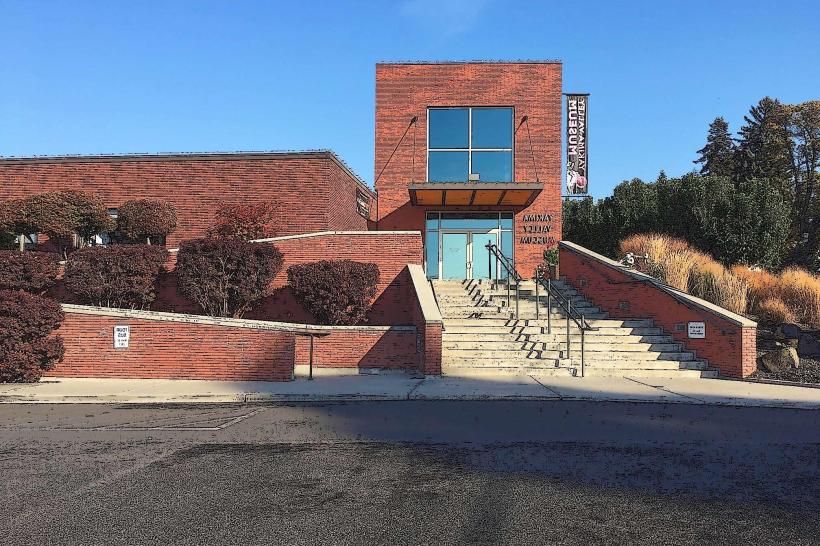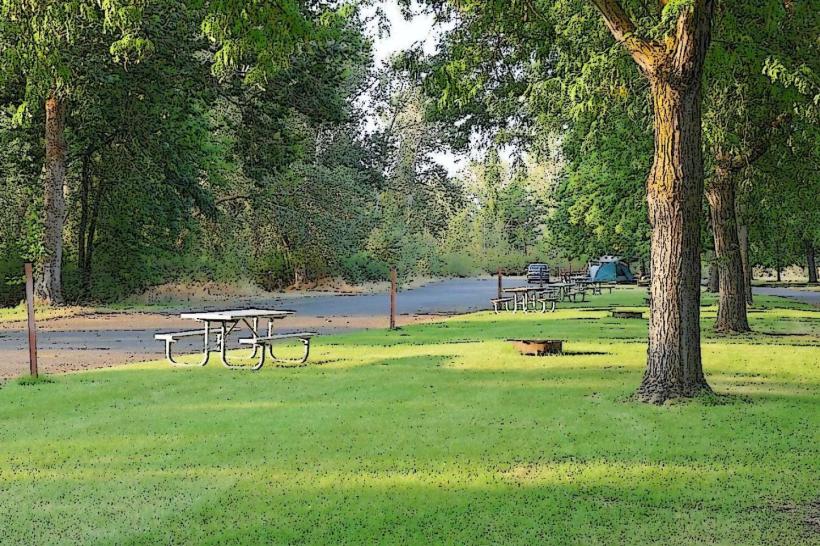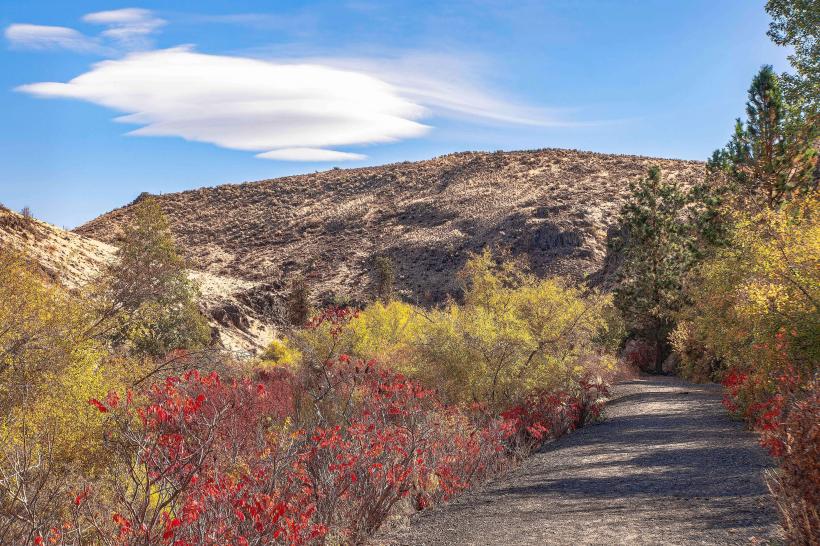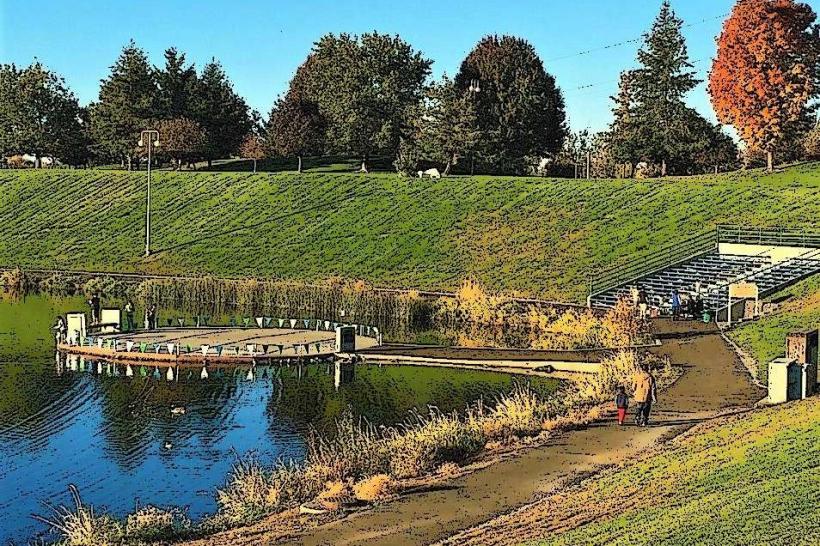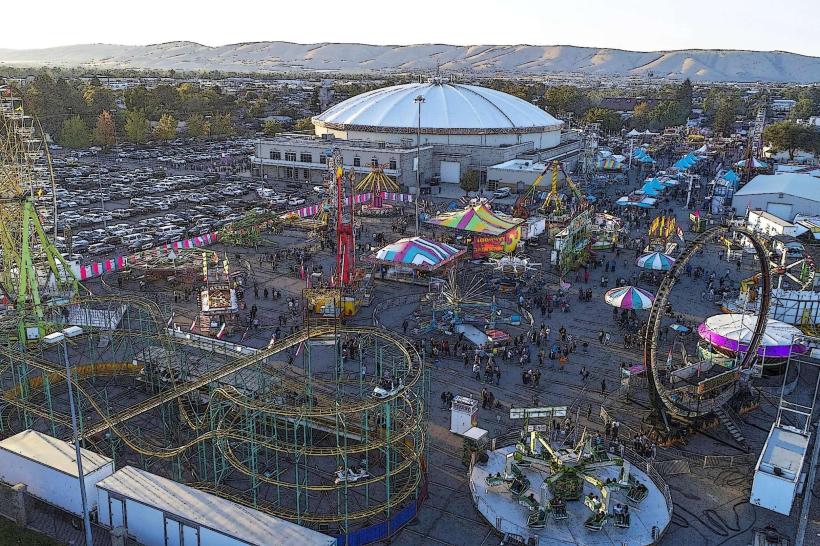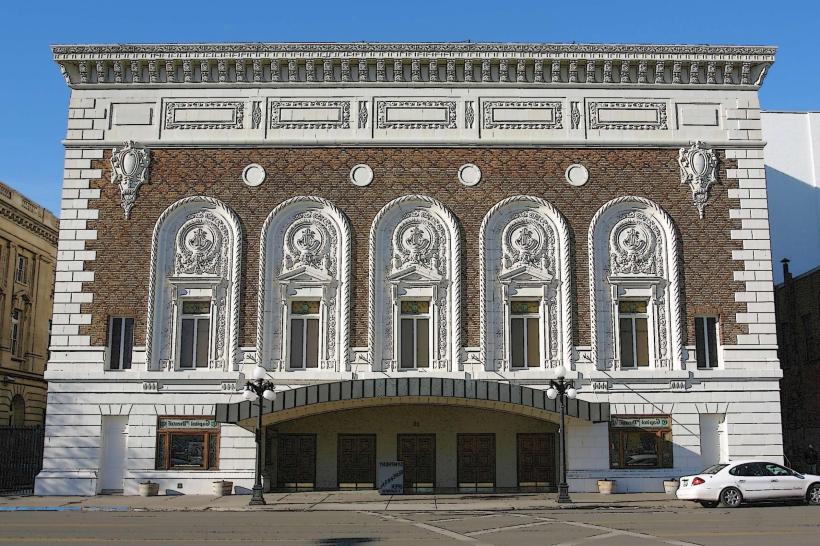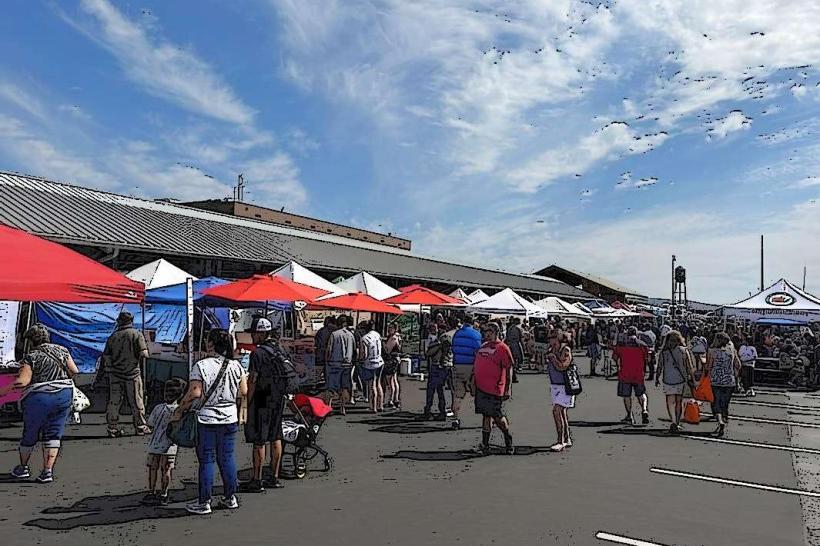Information
Landmark: Yakima Area ArboretumCity: Yakima
Country: USA Washington
Continent: North America
Yakima Area Arboretum, Yakima, USA Washington, North America
The Yakima Area Arboretum is a prominent 46-acre botanical garden and natural sanctuary located within the city of Yakima, Washington. It stands as a vital community resource dedicated to the preservation, education, and enjoyment of plant biodiversity native and adapted to the Inland Northwest region. Established in 1967, the Arboretum has grown into a living museum featuring over 1,000 species of trees, shrubs, grasses, and forbs, which are meticulously curated and displayed throughout its grounds.
Location and General Description
Situated along the Yakima River, the Arboretum provides a unique blend of cultivated garden spaces and natural riparian habitats. The river’s proximity not only enhances the aesthetic appeal but also supports a diverse range of wildlife and plant species, making the Arboretum both a recreational destination and an ecological preserve.
The site is thoughtfully designed to accommodate visitors of all ages and interests, with paved pathways, interpretive signage, educational facilities, and accessible amenities. Its size and diversity offer a comprehensive glimpse into the local flora, fostering an appreciation for the environment and sustainable landscaping.
Plant Collections and Garden Features
The Yakima Area Arboretum’s collections are its defining characteristic, featuring an impressive range of plant species organized into specialized gardens and themed areas that illustrate various ecological and horticultural concepts:
Rock Border Garden: This garden emphasizes xeriscaping principles, showcasing drought-tolerant plants that thrive in arid conditions typical of the region. It serves as an educational model for water-wise gardening.
Joyful Garden (Japanese Garden): A tranquil and culturally inspired space incorporating traditional Japanese landscaping elements such as stone arrangements, water features, and carefully pruned plants. It offers visitors a peaceful retreat and a demonstration of aesthetic gardening practices.
Edward M. Schroeder Wetland Trail: This trail highlights native wetland species, demonstrating the importance of aquatic and semi-aquatic plants in local ecosystems. It’s a favored spot for birdwatchers and nature lovers.
Carlson Butterfly Garden: Designed to attract butterflies and other pollinators, this garden educates visitors on pollinator habitats and the role of native plants in supporting biodiversity.
Giant Sequoia/Living Fossil Collection: Featuring ancient tree species that have survived for millions of years, this collection connects visitors to the deep natural history of the planet.
Woody Plant Collections: Including beech, hawthorn, maple, nut, and rose varieties, these collections showcase the diversity of temperate woody plants with ornamental, ecological, and practical value.
Raised Bed Vegetable Garden: Demonstrates sustainable gardening techniques and promotes home gardening with edible plants suited to the local climate.
Kara Kondo Dryland Garden: Highlights plants adapted to dryland conditions, offering insights into resilient gardening in the face of climate challenges.
Viburnum and Conifer Collections: Focused on ornamental evergreens and deciduous shrubs, these collections provide year-round interest and illustrate conifer diversity.
Flowering Ornamental Fruit Tree Collection: Combines aesthetic appeal with functional fruit production, demonstrating the integration of beauty and utility in garden design.
Plant species are carefully labeled with small silver tags placed on the lower branches or trunks, providing botanical names and informative details that enhance the educational experience for visitors.
Jewett Interpretive Center
At the heart of the Arboretum lies the Jewett Interpretive Center, established in 1992. This facility acts as the primary hub for educational programs, visitor services, and community events. Key features include:
Heritage of Trees Display: An exhibit exploring the cultural, ecological, and historical significance of various tree species, emphasizing their importance to both humans and natural ecosystems.
Meeting Rooms (Gardenview and Solarium): These versatile spaces are used for workshops, classes, lectures, and community gatherings, facilitating ongoing environmental education.
Tree House Gift Shop: Offers nature-themed books, gifts, and educational materials, supporting the Arboretum’s mission through fundraising.
Courtyard: A tranquil outdoor seating area surrounded by native plants, ideal for reflection and casual socializing.
Support Facilities: Including a kitchen, restrooms, and administrative offices necessary for the Arboretum’s day-to-day operations.
The Interpretive Center is staffed by knowledgeable personnel and volunteers who provide guidance, information, and programming to visitors.
Natural Habitats and Wildlife
In addition to its curated gardens, the Yakima Area Arboretum encompasses approximately 15 acres of undeveloped natural areas along the Yakima River. These riparian zones are essential for sustaining local biodiversity and offer visitors immersive experiences in native habitats.
Wildlife commonly observed in these areas includes:
Birds: Canadian geese, bald eagles, great blue herons, hawks, hummingbirds, finches, and many songbird species.
Mammals: Small mammals such as squirrels inhabit the wooded areas.
The presence of the Yakima River enriches the ecosystem, supporting aquatic life and providing migratory pathways for birds. The Arboretum’s commitment to habitat preservation enhances its role as an environmental sanctuary within an urban setting.
Educational Programs and Community Events
The Arboretum is deeply invested in community education and engagement, offering a robust calendar of events and programs designed to connect people with nature:
ArborFest: An annual spring festival held in April featuring over 30 interactive educational stations hosted by local organizations. This family-friendly event promotes tree planting, environmental stewardship, and outdoor fun.
Arbor Day Tree Planting: Celebrated every second Wednesday in April, this event involves community members in tree planting projects to enhance urban forestry.
Luminaria: A wintertime event where visitors enjoy a candle-lit walk through the Arboretum, accompanied by live music, crafts for children, and seasonal refreshments, creating a magical holiday atmosphere.
First Light Luminaria Night: An exclusive preview event for members and donors offering early access to the Luminaria festivities.
Workshops and Classes: Regularly scheduled educational offerings cover topics such as native plant gardening, sustainable landscaping, wildlife habitat creation, and more.
Nature Day Camps: Programs designed for children and youth to foster environmental awareness and hands-on learning experiences.
These initiatives strengthen the Arboretum’s role as a community hub for environmental learning and recreation.
Visitor Information and Accessibility
Location: 1401 Arboretum Drive, Yakima, Washington, 98901.
Operating Hours: The outdoor grounds are open daily from dawn to dusk, ensuring ample time for visitors to explore. The Jewett Interpretive Center operates Monday through Saturday from 9 AM to 5 PM, with additional hours available by appointment.
Admission: Entry to the Arboretum is free, reflecting its public mission. Donations are welcomed and support maintenance, programming, and expansion.
Parking: On-site parking is available, including designated spaces for individuals with disabilities, ensuring ease of access for all visitors.
Pets: Dogs are permitted on leashes, with waste disposal stations provided. For off-leash options, nearby Sherman Park offers a dedicated dog park.
Facilities: Restrooms and picnic areas are available to enhance visitor comfort during their visit.
Significance and Impact
The Yakima Area Arboretum is a cornerstone of environmental conservation and education in central Washington. It provides residents and visitors with a rare opportunity to explore and learn about the rich plant diversity of the Inland Northwest within a serene urban oasis. Its extensive plant collections serve both aesthetic and educational purposes, while the natural areas support wildlife and promote ecological balance.
By combining hands-on educational programs, community events, and a welcoming public space, the Arboretum fosters a deep connection between people and the natural world. It encourages sustainable gardening practices, environmental responsibility, and a lifelong appreciation for trees and plants. The Arboretum’s integration into Yakima’s landscape enhances community well-being, cultural enrichment, and environmental stewardship for generations to come.

